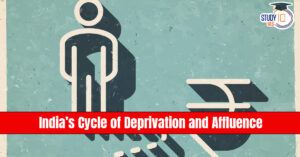Q. No.8- Civil Society Organizations are often perceived as being more anti-State actors than non-State actors. Do you agree? Justify.
| Approach: Begin by defining Civil Society Organizations as non-state, non-profit actors vital for participatory democracy. Examine why they are perceived as anti-State (foreign influence, protests, judicial activism, radicalization) versus their role as democratic partners (advocacy, service delivery, rights protection). Use Indian and global examples. Conclude with reforms for balance. |
Model Answer
The United Nations Development Programme defines Civil Society Organizations as non-state, non-profit entities working for shared ethical and social goals. In India, CSOs act as bridges between citizens and the State, shaping policies, mobilizing communities, and holding governments accountable.
Why Civil Society Organizations are Perceived as Anti-State
- China-Sponsored Activities – Intelligence reports (2014) noted foreign-funded CSOs, allegedly backed by Chinese-linked networks, mobilized protests against projects like Kudankulam Nuclear Plant and POSCO steel project, delaying India’s strategic infrastructure growth.
- Foreign Influence in Policy – Certain NGOs allegedly act under external influence to obstruct India’s development agenda. Example: Greenpeace India faced restrictions under the Foreign Contribution Regulation Act (2015) for campaigning against coal projects, seen as hurting energy security.
- Radicalization and Extremism – Some organizations misuse social capital for extremist mobilization. Example: The Popular Front of India (PFI) was banned under the Unlawful Activities (Prevention) Act (UAPA), 2022 for alleged involvement in radical and violent activities
- Foreign Funding Concerns – With many non-governmental organizations relying on overseas donors, strict scrutiny under the Foreign Contribution Regulation Act (FCRA) creates perceptions that some groups push external agendas against India’s sovereignty.
- Anti-Dam and Mining Movements – Some NGOs opposing projects like Vedanta’s Niyamgiri mining were accused of exaggerating environmental concerns under foreign influence, delaying industrial projects.
- Policy Resistance and Judicial Intervention – In the 2025 Supreme Court stray dog case, CSO petitions secured sterilization-vaccination instead of culling. While intended for animal welfare, authorities perceived it as obstructing public safety measures.
Why Civil Society Organizations are Non-State, not Anti-State?
- Democratic Deepening – CSOs give voice to the marginalized and strengthen accountability. For instance, the Mazdoor Kisan Shakti Sangathan (MKSS) mobilized people’s demand for transparency, leading to the Right to Information Act.
- Policy Advocacy – Several progressive legislations like the Right to Information Act (2005) and the Mahatma Gandhi National Rural Employment Guarantee Act (2005) emerged after sustained advocacy and grassroots campaigns by civil society networks.
- Service Delivery – Many CSOs complement the State by filling gaps in welfare. Organizations like the Self-Employed Women’s Association (SEWA) in livelihood security or Pratham in education showcase constructive partnership rather than confrontation.
- Constitutional Backing – The role of CSOs is rooted in the Constitution itself. Article 19(1)(c) guarantees freedom of association, while Directive Principles encourage citizen participation in building a just social order.
While some Civil Society Organizations have misused space for anti-State activities, their broader contribution to advocacy, service delivery, and accountability remains vital. A balanced regulatory framework can curb misuse while enabling CSOs to strengthen democracy and inclusive governance.

 Who Was Ayatollah Ali Khamenei? Biograph...
Who Was Ayatollah Ali Khamenei? Biograph...
 The Cycle of Deprivation and Affluence
The Cycle of Deprivation and Affluence
 NCERT Textbook Controversy and Supreme C...
NCERT Textbook Controversy and Supreme C...




















